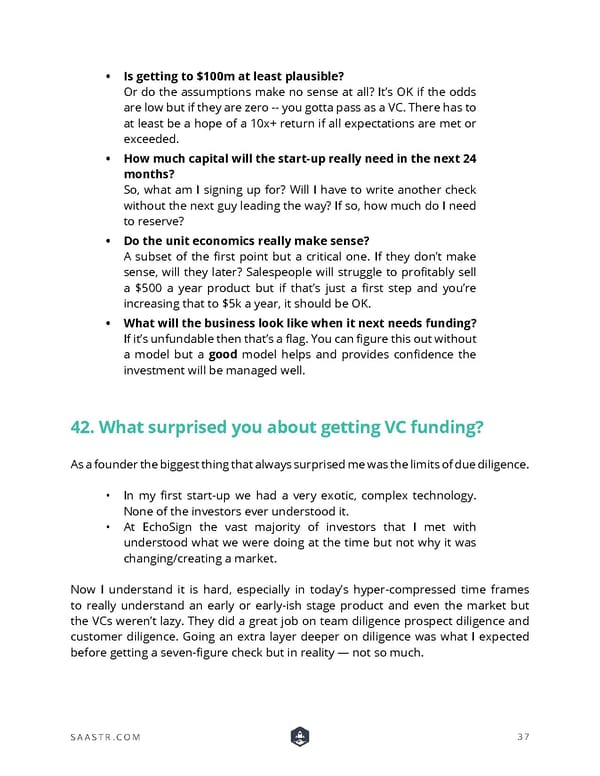• Is getting to $100m at least plausible? Or do the assumptions make no sense at all? It’s OK if the odds are low but if they are zero -- you gotta pass as a VC. There has to at least be a hope of a 10x+ return if all expectations are met or exceeded. • How much capital will the start-up really need in the next 24 months? So, what am I signing up for? Will I have to write another check without the next guy leading the way? If so, how much do I need to reserve? • Do the unit economics really make sense? A subset of the first point but a critical one. If they don’t make sense, will they later? Salespeople will struggle to profitably sell a $500 a year product but if that’s just a first step and you’re increasing that to $5k a year, it should be OK. • What will the business look like when it next needs funding? If it’s unfundable then that’s a flag. You can figure this out without a model but a good model helps and provides confidence the investment will be managed well. 42. What surprised you about getting VC funding? As a founder the biggest thing that always surprised me was the limits of due diligence. • In my first start-up we had a very exotic, complex technology. None of the investors ever understood it. • At EchoSign the vast majority of investors that I met with understood what we were doing at the time but not why it was changing/creating a market. Now I understand it is hard, especially in today’s hyper-compressed time frames to really understand an early or early-ish stage product and even the market but the VCs weren’t lazy. They did a great job on team diligence prospect diligence and customer diligence. Going an extra layer deeper on diligence was what I expected before getting a seven-figure check but in reality — not so much. SAASTR.COM 37
 The Ultimate Guide For Scaling Sales & Raising Capital Page 40 Page 42
The Ultimate Guide For Scaling Sales & Raising Capital Page 40 Page 42